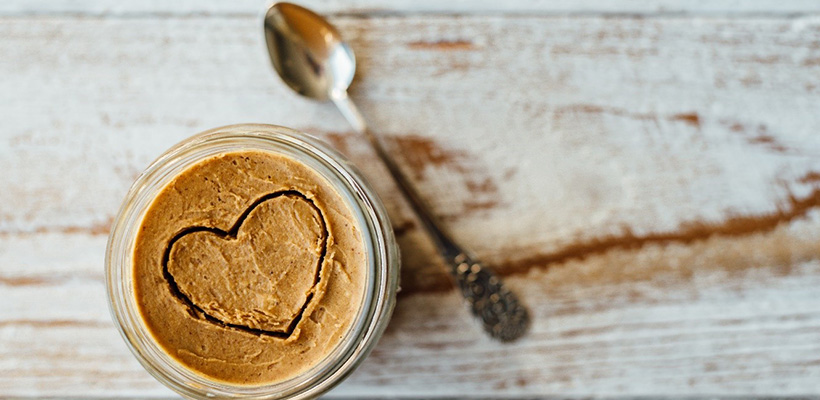
Written by Katia Kyriacou, Clinical Dietitian, MS, Registered Dietitian (USA)

Honey has been used as a natural remedy for centuries. Ancient Greeks and Egyptians used honey to treat wounds, heal gut soars and even given to soldiers before a battle. Nowadays, many health benefits of honey have been studied in an effort to elucidate its mode of action. Health benefits that range from antibiotic, antioxidant, anticancer and anti-inflammatory activity. In addition, raw honey has been reviewed as an effective carbohydrate for exercise.
Although the nutritional facts vary slightly depending on the floral variety, they remain similar as a whole. With 64 calories per 1 tablespoon and an average composition of 80% carbohydrate 18% water and 2% vitamins, minerals mostly potassium and individual amino acids makes it the healthiest option for a natural sweetener. Bear in mind that even though refined sugar has been categorized as a carcinogenic, raw unprocessed honey offers a unique combination of anticancer properties, antioxidants and probiotic sugars.
Packed with natural sugars –primarily glucose and fructose- 1 tablespoon of raw honey scores 35-45 (moderate) on glycemic Index scale (GI-numerical index that ranks carbohydrates based on their fasting blood glucose response) and 9 (low) on the Glycemic Load scale (GL-numerical index of how quantity affects blood sugar control). Therefore, for Glycemic Response you need to take into account both TYPE and AMOUND of carbohydrate and in terms of raw honey small portions will have a moderate effect on your blood sugars. Keep in mind that if you combine honey with protein, for instance honey with yogurt, you will have a slower release and a better glucose control! However, if honey has been adulterated with refined sugars or sugar fed bees then GI will score very high.

A study titled “Honey: An alternative sports gel” published in the National Strength & Conditioning Association (2002) reports honey taken before exercise is an effective carbohydrate for boosting endurance during exercise with no issues of hypoglycemia- due to slow release of glucose - or gastrointestinal upset. Honey taken post workout, also showed to replenish muscle glycogen, thus decreasing recovery time. Ingesting carbohydrates and protein within 2 hours following exercise (e.g., 1.5 g/kg carbohydrate and 0.5 g/kg protein) has been reported to increase glycogen resynthesis
and protein synthesis, promote a more optimal anabolic hormonal environment, and improve immune function. Consider combining raw honey (1tbsp provides approximately 15gr Carbohydrates), fruits, nuts and yogurt for protein after workout!

In a review by Erejuwa et al (2012) titles “Honey: a novel antioxidant” becomes evident that honey possesses antioxidant activity, therefore is able to scavenge free radicals. This is mostly due to the Polyphenol and Flavonoid content. Antioxidant properties have also been reported in organic acids of honey mainly gluconic which acts as a chelating metal ion increasing the effects of the antioxidant activity of flavonoids (Otman, 2012 Evidence-Based Complementary and Alternative Medicine). The health benefits of phenols and Flavonoids antioxidants are well reported in the literature and include: 1. Reduction of inflammation 2. Reduction of cardiovascular risk factors due to the reduction in LDL- Cholesterol or bad cholesterol oxidation and 3. Anticancer activity.
The antioxidant and anti-inflammatory activity of honey may also play a role in cardiovascular disease, if associated with a diet low in saturated fats, rich in fruits, vegetables and whole grains. In a 2008 study (yaghoobi et al) it was reported that raw honey taken in small amounts every day in association with a healthy diet reduced cholesterol levels, Low Density Lipoprotein cholesterol, triglycerols, fasting blood glucose and high Sensitive C-reactive protein (CRP) – inflammation marker. As discussed earlier the amount used on a daily bases is very important. Low doses of raw honey could provide the sated benefits, caution must be taken with high amounts which may lead to opposite effects, such as increasing Triglycerides and Fasting Glucose!
According to the National Institute of Health applying raw honey to infected wounds can reduce redness and swelling as well as reducing healing time from bacterial infection. The healing property of honey is due to the fact that it offers antibacterial activity, maintains a moist wound condition and its high viscosity helps to provide a protective barrier to prevent infection. Some studies report honey can effectively be used to treat small not serious burns. When applied to burns honey reduces air contact relieving pain and possibly infection.

Honey having fructooligosaccharides can act as a prebiotic. Prebiotics are non-digestible food ingredient used for the growth of probiotics, important for gut health. Prebiotics can be used with constipation, diarrhea as well as for gut soars and bloating.
Although honey is an excellent source of sweetness with multiple health benefits it can be toxic for infants causing botulism. Botulism is a rare but serious gastrointestinal sickness caused by exposure to bacterial spores. Immunocompromised individuals should also avoid unprocessed honey for the same reason.
Honey when used in reasonable amounts daily could have a positive outcome to health as an antioxidant, anti-inflammatory, wound healing and gut health. When honey is pure then in small quantities can also be enjoyed by people with diabetes. There are promising evidence for boosting endurance in athletes and decreasing recovery time.
Except for the infants and immunocompromised individuals, pure honey could be a great and natural way to sweeten up your day!!
We can send you monthly articles about Mellona products, their nutrition value,
recipe ideas and partnership opportunities.
Just write your email here.